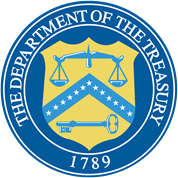|
https://thehill.com/blogs/congress-blog/politics/571517-irs-account-monitoring-plan-brings-consumers-into-reconciliation

Thursday, September 9, 2021
IRS account monitoring plan brings consumers into
reconciliation debate
By Rebeca Romero Rainey, opinion contributor
Joe Manchin
(D-W.Va.) has raised
concerns about the $3.5 trillion price tag
of budget-reconciliation legislation that Congress is set
to take
up this week, Americans are increasingly
speaking out against a provision that would require banks to
report their customers’ account information to the Internal
Revenue Service.
The proposal — first
laid out by the Treasury Department and
set to be introduced during this week’s committee markups —
is designed to close
the “tax gap” between what American
taxpayers pay and what they owe to help fund the spending
bill. But the comprehensive, untargeted nature of the
proposal is eliciting broad opposition not just from bankers
who would be required to report the information to the IRS,
but from the consumers they serve.
A poll commissioned by my organization — the Independent
Community Bankers of America — and conducted by Morning
Consult found that two-thirds of voters (67 percent) oppose
the IRS collecting their bank account information. More than
half (53 percent) of voters strongly oppose the plan, while
only 22 percent support it.
Further, more than three in five voters (64 percent) do not
trust the IRS to monitor their deposit and withdrawal
information. And more than half (54 percent) do not trust
the agency to keep their financial data safe from data
breaches. This latter data point isn’t unexpected given the
recent high-profile tax
return leak the IRS is investigating as
well as consumer anxiety over “math-error
notices” triggered by stimulus payments.
The polling response indicates that consumers find IRS
monitoring of their personal financial account transaction
histories to be an invasion of privacy that is no business
of the government. Consumers are also expressing concerns
that the plan could potentially harm small businesses by
increasing their tax liability.
What’s more, intrusive account reporting to the IRS could
undermine Washington’s ongoing policy initiative of reducing
the unbanked population. With distrust of institutions and
government agencies inhibiting banking relationships —
particularly among marginalized communities and those who
have fled authoritarian regimes — indiscriminate financial
account reporting risks increasing the challenge of reaching
these individuals and families.
Instead of gathering heaps of new taxpayer information,
consumers indicate they support closing the tax gap by
making better use of the data the IRS already has.
Similarly, a recent
joint letter to congressional leaders from
the International Franchise Association, National Federation
of Independent Business, U.S. Chamber of Commerce, and other
business groups advocates identifies less intrusive ways of
closing the tax gap.
As the IRS proposal takes shape in Washington, community
bankers will continue informing their customers of its
potential impact while they continue to aid the economic
recovery in their local communities.
Rebeca Romero Rainey is
president and CEO of the Independent Community Bankers of
America.
https://home.treasury.gov/system/files/131/General-Explanations-FY2022.pdf

U.S. Department of the Treasury
May 2021
Pages 88-89
General Explanations of the
Administration’s Fiscal Year 2022 Revenue Proposals
INTRODUCE COMPREHENSIVE
FINANCIAL ACCOUNT REPORTING TO IMPROVE TAX COMPLIANCE
Current Law
Business income is subject to limited information
reporting. Current information reporting of gross receipts
exists for only certain types of revenue (from Forms
1099-MISC, 1099-NEC, and 1099-K), and there is no
information reporting on total deductible expenses.
Reasons for Change
The tax gap for business income (outside of large
corporations) from the most recently published Internal
Revenue Service (IRS) estimates is $166 billion a year.
[Footnote #1] The scale of
this revenue loss is driven primarily by the lack of
comprehensive information reporting and the resulting
difficulty identifying noncompliance outside of an audit.
While the net misreporting percentage is only 5 percent for
income subject to substantial information reporting, the net
misreporting percentage for certain categories of business
income exceeds 50 percent.
Requiring comprehensive
information reporting on the inflows and outflows of
financial accounts will increase the visibility of gross
receipts and deductible expenses to the IRS. Increased
visibility of business income will enhance the effectiveness
of IRS enforcement measures and encourage voluntary
compliance.
Proposal
This proposal would create a comprehensive financial account
information reporting regime.
Financial institutions would report data on financial
accounts in an information return. The annual return will
report gross inflows and outflows with a breakdown for
physical cash, transactions with a foreign account, and
transfers to and from another account with the same owner.
This requirement would
apply to all business and personal accounts from financial
institutions, including bank, loan, and investment accounts
[Footnote #2] with the
exception of accounts below a low de minimis gross flow
threshold of $600 or fair market value of $600.
Other accounts with characteristics similar to financial
institution accounts will be covered under this information
reporting regime. In
particular, payment settlement entities would collect
Taxpayer Identification Numbers (TINs) and file a
revised Form 1099-K
expanded to all payee accounts (subject to the same
de minimis threshold),
reporting not only gross receipts but also gross purchases,
physical cash, as well as payments to and from foreign
accounts, and transfer inflows and outflows.
Similar reporting requirements would apply to crypto asset
exchanges and custodians. Separately, reporting
requirements would apply in cases in which taxpayers buy
crypto assets from one broker and then transfer the crypto
assets to another broker, and businesses that receive crypto
assets in transactions with a fair market value of more than
$10,000 would have to report such transactions.
The Secretary would be given broad authority to issue
regulations necessary to implement this proposal.
The proposal would be effective for tax years beginning
after December 31, 2022.
Footnotes:
#1
- Computed from individual income tax business income, small
corporations, and self-employment tax components.
#2
- Current income reporting by financial institutions would
be expanded to all entities, including certain
corporations. Interest payments would be included in the
loan account reporting. Transferee information would be
reported for all real estate transactions on Form 1099-S.
BILLS BEFORE THE U.S. CONGRESS
117th Congress (2021-2022)
H.R.1200 - Stop CHEATERS Act (PDF)
S.1788 -
Restoring the IRS Act
(PDF)
S.1857 -
Stop CHEATERS Act
(PDF) |